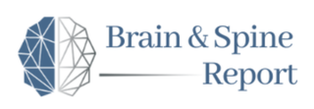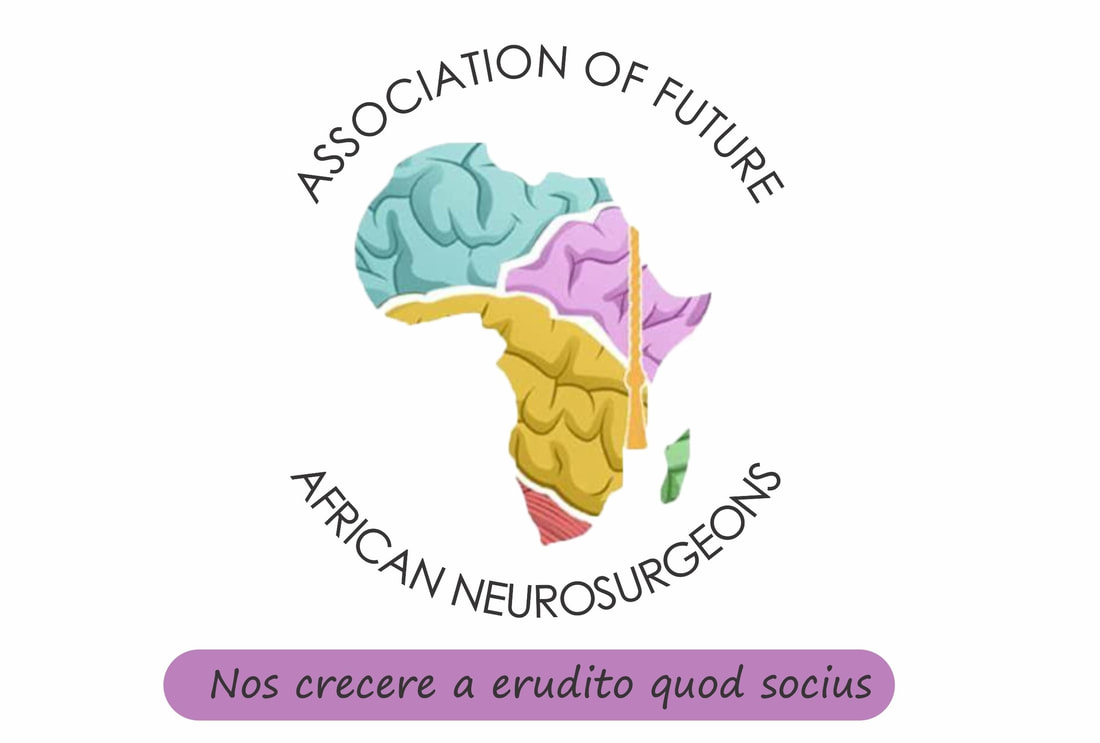|
The Association of Future African Neurosurgeons (AFAN) is a non- governmental and nonprofit organization, consisting of medical students, physicians and neurosurgery specialists that provides neurosurgery resources for African medical students. Summary Nurturing neurosurgery interest among African Medical Students is a challenging task. The Association of Future African Neurosurgeons (AFAN) is a non- governmental and nonprofit organization, consisting of medical students, physicians and neurosurgery specialists that provides neurosurgery resources for African medical students. AFAN offers mentorship, networking opportunities, research experience, capacity building and education. In this article, the authors describe the activities of AFAN. Introduction In Africa, nurturing neurosurgery interest without external help (mentors, neurosurgical societies, international neurosurgical training outreach) is a challenging task. Moreover, access to neurosurgical training is limited due to lack of information and prohibitive costs. The Association of Future African Neurosurgeons (AFAN) aims to bridge this gap by providing information on training programs, scholarships, and career planning. What is AFAN AFAN is a non-governmental and non-profit organization. This neurosurgery interest group consists of students, early-career physicians, residents, neurosurgeons, neuro-anesthetists, neurologists, neuroanatomists and neuro-pathologists from all over the world and particularly from Africa. AFAN provides mentorship, education, advocacy, and research in neurosurgery and related fields. The vision of AFAN is to become the largest and most efficient community of aspiring African neurosurgeons and facilitate their career development in neurosurgery. To accomplish this, AFAN disseminates information (through its social media platforms and website) and builds capacity among aspiring African neurosurgeons. AFAN counts more than 120 members with females constituting 22% and males 78% of the registered members. The three quater of members are from African countries while other members come from Europe, Asia and North America. Half of AFAN members are medical students and a third are general practitioners while neurosurgical residents as well as consultant neurosurgeons make up the rest of AFAN members. Mentorship and Networking Mentorship is provided by senior AFAN members to students, general practitioners and residents (1). Mentees frequently have video calls through WhatsApp (or Zoom) with their mentors. During these calls, mentors and mentees exchange conversations on the academic and social aspects of life. Mentees are free to contact their mentors whenever they face difficulties and mentees are encouraged to express themselves without inhibition. AFAN members are qualified and experienced. Firstly some leaders in AFAN include family heads (parents), department heads, chief residents and those in leadership positions of organized neurosurgery. Secondly, AFAN leaders are from all over Africa and have worked with or are affiliated with international residency programs, including the University of Zimbabwe, Houphouet Boigny University of Abidjan Côte d’Ivoire, Mohammed V University of Rabat Morocco and Harvard Medical School. Membership within a strong professional network and community plays a vital role in career development (2). AFAN offers students a golden opportunity by providing professional networking opportunities and integration in neurosurgical communities worldwide. Given that AFAN members come from universities all over Africa, students get to know and exchange with fellow African students and with both residents and neurosurgeons. This facilitates exchange of ideas and fosters collaborations geared towards career development. Moreover, AFAN members are introduced to international non-African neurosurgical communities like neurosurgical cocktail, neurosurgery coach, Neurosurgical TV which are social media groups composed of neurosurgeons, neurosurgical residents and individuals with interest in neurosurgery who share resources, opportunities and experience in the field of neurosurgery. Students are encouraged to actively participate in the activities organized by these communities and to network. One such opportunity has led to the integration of some AFAN members in peer-reviewed neurosurgery journals, blogs and magazines. Education The majority of medical training institutions in Africa lack neurosurgeon-educators. As a result, African medical students often lack an appropriate exposure and understanding of the field to pursue a career in neurosurgery and develop their career (3). To bridge this gap, AFAN exposes its student members to neurosurgery-educators by inviting the students to free online educational activities. For example, AFAN organizes weekly webinar presentations (Saturday at 5 PM GMT on Zoom) during which a medical student is paired with a resident and this pair presents on a topic. The residents present last on neurosurgical pathologies while the medical students present first; often on a less complex but related topic (anatomy, histology, physiology, or neuroradiology). The presentations are done in English to increase access and accommodate everyone because African states have thousands of local languages. To this date, AFAN has organized two neuroanatomy series: cranial (20 lectures) and spine (15 lectures). These presentations are recorded and made available on AFAN’s YouTube channel to ensure universal access. African medical students lack access to electricity or the internet and may not be able to follow a full live webinar. Research In most African countries, research is considered inaccessible by medical students while their counterparts on other continents excel in this realm (4). To level the playing field, AFAN provides members with research experiences. AFAN organizes monthly online journal clubs to educate members on research methodology and recent advances in the field. AFAN members also conduct research under the supervision of neurosurgeons and residents. Currently, AFANstudents are involved in designing and writing survey research and scoping reviews. Some of the studies have been presented at international conferences (InciSioN Global Surgery Symposium and Bethune Round Table). AFAN studies have been published in World Neurosurgery, the Egyptian Journal of Neurosurgery, the Journal of Neurosciences in Rural Practice and the Pan African Medical Journal (5). Students are taught how to conceptualize research, design studies, analyze data, write, review and edit manuscripts as well as acquire funding for their research. With this early exposure to research, students acquire the experience needed to become proficient academic neurosurgeons. This goes a long way to reduce the neurosurgical research gap between high-income countries (HICs) and Africa (6). Advocacy To change the status quo in Africa, there is a need for strong and well organized advocacy (7). AFAN members speak up on, draw the community’s attention to, and propose solutions on gender equity in neurosurgery and global neurosurgery (universal access to neurosurgical care) (8). AFAN’s advocacy strategy consists of:
For global neurosurgery advocacy, medical students and general practitioners are regularly sensitized on career development in neurosurgery and related specialties; this is an attempt to increase the number of African neurosurgeons in the future. This effort is crucial because there is a neurosurgical workforce deficit in Africa (11). Practically aspirants are prepared for admission into neurosurgery residency while residents are guided through their training and are assisted in the acquisition of fellowship positions. Also, neurosurgical care provided by African citizens has better patient outcomes than neurosurgical care provided by non-African providers. This is because African healthcare providers understand their people’s needs better and have better communication with patients given they have the same language, culture and traditions with the patients they serve thus these patients tend to trust them more than non-Africans. This results in better doctor-patient relationships which improves treatment compliance and patient outcome. Capacity Building AFAN trains members in public speaking, resume and personal statement writing and interview strategies. These are essential skills for career development and they improve the profile of prospective applicants (12). AFAN shares existing resources and creates content geared specifically for African applicants. The content is in the form of walkthrough videos, pamphlets and voice notes, stored on AFAN’s Google Drive and periodically shared via the AFAN WhatsApp and Telegram group. AFAN requires each student to provide feedback and comments on the quality of the resources they receive in order to improve resources going forward. Members are encouraged to utilize and develop their natural aptitudes in fostering their career. Students are individually followed-up and their aptitudes are fined tuned. AFAN allocates projects to students based on their skills and permits them to actively use these aptitudes to effectively fulfil their tasks (13). For example, some applicants are proficient in medical illustrations, community management, website designing, social media platforms management while others excel in leadership and advocacy. Each applicant is therefore motivated to use these in our community to help them nurture these skills and aptitudes. In an attempt to always provide the best opportunities and career development for aspirants, AFAN has a myriad of activities being planned for the future. In the upcoming years, neurosurgical training boot camps, international symposiums, the creation of a medical student neurosurgery journal, and the creation of scholarships for medical students and residents will be organised geared towards African aspirants’ career development in neurosurgery. AFAN membership and contacts African medical students, residents and neurosurgeons are invited to AFAN. Those interested can register on the AFAN form (https://forms.gle/BeJryyazBPW2CJSS7) and are encouraged to follow AFAN’s activities on social media. Below are the links to AFAN's various social platforms: Telegram: https://t.me/joinchat/N2nwiBf4Anm7xi0SnkQJdQ Twitter: @FutureAfroNS:https://twitter.com/FutureAfroNS?s=09 Facebook:@FutureAfroNeurosurgeons: https://www.facebook.com/120947722630670?referrer=whatsapp YouTube: Association of Future African Neurosurgeons: https://www.youtube.com/watch?v=61Sc5lI2omE Below is the link to AFAN’s website: https://futureafroneurosurgeons.wordpress.com/ AuthorsYvan Zolo References
Comments are closed.
|
Categories
All
Archives
October 2023
|





8/14/2020